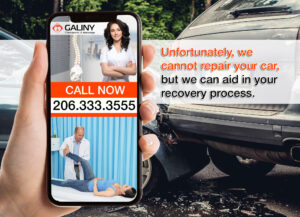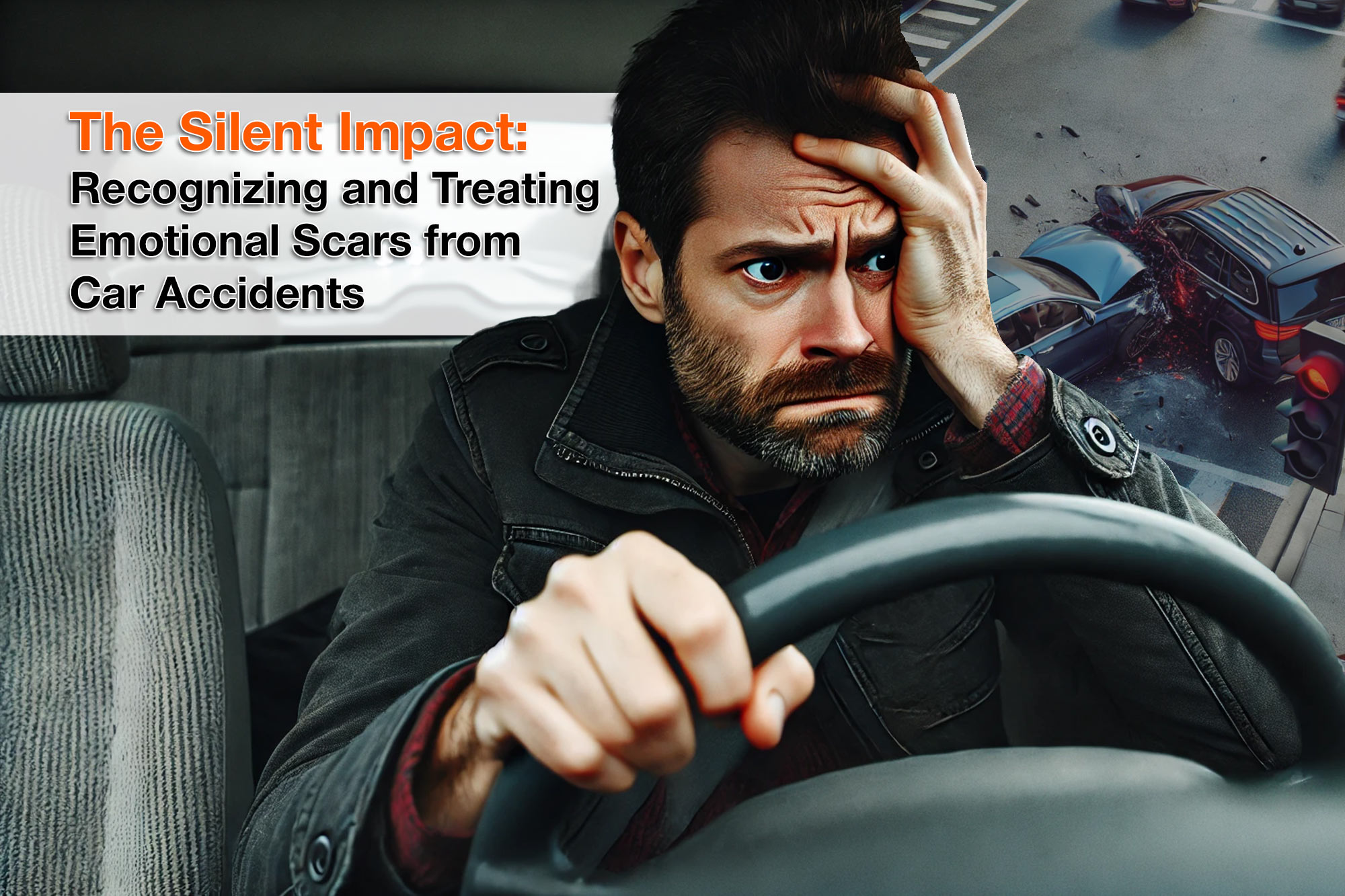The Silent Impact: Recognizing and Treating Emotional Scars from Car Accidents
Car accidents are traumatic experiences that can leave lasting psychological scars, even when physical injuries are absent or minimal. The psychological impact of a car accident can manifest in various ways, often affecting a person's mental health, emotional well-being, and overall quality of life. This article explores the psychological damage that can occur after a car accident and the treatment options available to help individuals recover.
Understanding Psychological Damage After a Car Accident
Psychological damage after a car accident is a broad term that encompasses a range of mental health issues. The severity of these issues can vary depending on factors such as the seriousness of the accident, the individual's personality, pre-existing mental health conditions, and the level of support they receive from family, friends, and professionals.
1. Acute Stress Disorder (ASD)
ASD is a short-term condition that occurs immediately after a traumatic event, such as a car accident. Symptoms of ASD may include:
- Intrusive Thoughts: Recurring and distressing memories of the accident.
- Avoidance: Avoiding thoughts, feelings, or situations that remind the person of the accident.
- Hyperarousal: Being easily startled, feeling tense or on edge, and having difficulty sleeping.
- Dissociation: Feeling detached from oneself or reality, which can include a sense of numbness or emotional disconnection.
ASD typically lasts for a few days to several weeks. If left untreated, it can progress to more severe conditions like Post-Traumatic Stress Disorder (PTSD).
2. Post-Traumatic Stress Disorder (PTSD)
PTSD is a more chronic and severe response to trauma. It can develop weeks, months, or even years after the accident. Symptoms of PTSD include:
- Re-experiencing the Trauma: Flashbacks, nightmares, and intrusive thoughts related to the accident.
- Avoidance: Avoiding places, people, and activities that remind the individual of the accident.
- Negative Changes in Thought and Mood: Persistent negative emotions such as fear, guilt, or shame, along with feelings of detachment from others.
- Hyperarousal: Constantly feeling on edge, having difficulty concentrating, and being easily startled.
PTSD can significantly impair an individual's ability to function in daily life and often requires long-term treatment.
3. Depression
Depression is another common psychological consequence of car accidents. The sudden and often life-altering nature of an accident can lead to feelings of hopelessness, sadness, and a loss of interest in activities that were once enjoyable. Symptoms of depression may include:
- Persistent Sadness: A prolonged feeling of sadness or emptiness.
- Fatigue: A lack of energy or constant tiredness.
- Changes in Appetite or Sleep: Eating too much or too little, sleeping too much or too little.
- Difficulty Concentrating: Trouble focusing on tasks or making decisions.
- Suicidal Thoughts: In severe cases, thoughts of death or suicide.
Depression can also co-occur with PTSD or other anxiety disorders, complicating the recovery process.
4. Anxiety Disorders
Anxiety is a natural response to danger, but when it becomes overwhelming and persistent after a car accident, it can develop into an anxiety disorder. Symptoms of anxiety disorders include:
- Excessive Worry: Constant worry about the accident or future accidents.
- Panic Attacks: Sudden episodes of intense fear, heart palpitations, shortness of breath, and dizziness.
- Phobias: Developing a fear of driving or even being a passenger in a vehicle.
- Social Anxiety: Avoiding social situations or places where reminders of the accident might be present.
Anxiety disorders can severely limit a person's ability to engage in everyday activities and maintain relationships.
Treatment Options for Psychological Damage
Treatment for psychological damage after a car accident often involves a combination of therapeutic approaches. The goal of treatment is to help individuals process their trauma, manage their symptoms, and regain control of their lives.
1. Cognitive Behavioral Therapy (CBT)
CBT is one of the most effective treatments for trauma-related psychological issues, including ASD, PTSD, and anxiety disorders. This therapy focuses on identifying and challenging negative thought patterns and beliefs that contribute to distress. Techniques used in CBT may include:
- Exposure Therapy: Gradually and safely exposing the individual to memories of the accident or situations that trigger anxiety, helping them desensitize to the trauma.
- Cognitive Restructuring: Identifying and reframing irrational or unhelpful thoughts about the accident.
- Stress Management Techniques: Teaching relaxation methods such as deep breathing, mindfulness, and progressive muscle relaxation to reduce symptoms of anxiety.
2. Eye Movement Desensitization and Reprocessing (EMDR)
EMDR is a specialized therapy that has proven effective for treating PTSD and other trauma-related conditions. During EMDR sessions, the therapist guides the patient through recalling distressing images and feelings while simultaneously focusing on external stimuli, such as side-to-side eye movements or hand tapping. This process helps the brain reprocess the traumatic memories, reducing their emotional impact.
3. Medication
Medication can be an essential component of treatment for psychological damage after a car accident. Antidepressants, such as selective serotonin reuptake inhibitors (SSRIs), and anti-anxiety medications may be prescribed to manage symptoms of depression, anxiety, and PTSD. While medication alone is rarely sufficient, it can provide relief from acute symptoms and make therapy more effective.
4. Support Groups and Peer Support
Support groups offer a safe space for individuals to share their experiences with others who have gone through similar traumatic events. Peer support can provide comfort, reduce feelings of isolation, and offer practical coping strategies. Some individuals find that connecting with others who understand their experiences is a crucial part of their healing process.
5. Lifestyle Changes and Self-Care
In addition to formal treatment, making lifestyle changes and practicing self-care can significantly improve mental health after a car accident. These may include:
- Regular Exercise: Physical activity can help reduce symptoms of depression and anxiety by releasing endorphins and improving sleep.
- Healthy Eating: A balanced diet can support overall mental and physical health.
- Adequate Sleep: Ensuring sufficient rest is essential for emotional resilience and recovery.
- Mindfulness and Relaxation Practices: Techniques such as yoga, meditation, and deep breathing can help manage stress and improve mental clarity.
Conclusion
The psychological damage resulting from a car accident can be as debilitating as physical injuries, if not more so. Recognizing the signs of psychological trauma and seeking appropriate treatment is crucial for recovery. With the right combination of therapy, medication, support, and self-care, individuals can heal from the psychological wounds of a car accident and regain control of their lives.
If you or someone you know is struggling with the psychological aftermath of a car accident, reaching out to a mental health professional is the first step towards healing. Early intervention can make a significant difference in preventing long-term mental health issues and improving overall well-being.
Introducing Galiny Accident Recovery Center
 When it comes to recovering from car accident injuries and restoring your well-being, Galiny Accident Recovery Center stands as a trusted and dedicated resource. Located in Federal Way and Kent, Washington, our center specializes in providing comprehensive chiropractic and massage therapies tailored specifically to car accident victims.
When it comes to recovering from car accident injuries and restoring your well-being, Galiny Accident Recovery Center stands as a trusted and dedicated resource. Located in Federal Way and Kent, Washington, our center specializes in providing comprehensive chiropractic and massage therapies tailored specifically to car accident victims.
At Galiny Accident Recovery Center, we understand the unique challenges faced by those who have been in accidents. Our experienced team of chiropractors and massage therapists work diligently to create personalized treatment plans that address your specific injuries and promote effective healing. With a focus on non-invasive and drug-free approaches, we strive to alleviate pain, restore mobility, and enhance your overall quality of life.
By choosing Galiny Accident Recovery Center, you gain access to a range of therapeutic modalities, including chiropractic adjustments, targeted massage techniques, rehabilitative exercises, and ergonomic recommendations. Our practitioners are well-versed in treating a variety of car accident injuries, including whiplash, back pain, joint injuries, and muscle strains.
We are committed to providing compassionate care and exceptional service to all our patients. Our goal is to support your recovery journey, helping you regain functionality, manage pain, and prevent long-term health complications. We prioritize open communication, actively involving you in your treatment decisions and ensuring that you receive the individualized attention you deserve.
If you or your loved ones have been involved in a car accident, don't delay seeking the medical attention you need. Contact Galiny Accident Recovery Center today to schedule a consultation and take the first step towards a swift and thorough recovery.
Remember, your well-being is our priority at Galiny Accident Recovery Center, where we are dedicated to helping you restore your health, mobility, and overall quality of life.

